The South West Analytics and Infrastructure in Healthcare (SWAIH) Annual Meeting recently brought together 150 health data experts, digital leads, clinicians, and researchers at Sandy Park, Exeter to reflect on how data can – and should – shape the future of health and care across the region. Demonstrating its reach and interdisciplinarity, this year’s event was supported by Health Data Research UK SW, the SW Secure Data Environment, the EPSRC Hub for Quantitative Modelling in Healthcare, PenARC, and Exeter’s BRC.
The Annual Meeting has become a significant event for the SWAIH Network – giving members an opportunity to meet colleagues from across the region, learn more about national and regional developments in healthcare data, and help develop a shared understanding of priorities and opportunities for the region. The network, launched in early 2023 to support health data professionals in the South West to stay informed in a rapidly changing ecosystem, now has over 600 members from across the region,
This year’s Annual Meeting, the third of its kind, showcased cutting-edge developments in data infrastructure, progress from the SW Secure Data Environment, and the growing (but complex) role of AI in health and care. A recurring theme throughout the day was the recently published NHS 10-Year Plan – an ambitious roadmap signalling a major shift in how health data, digital tools and AI will be used to transform care. Speakers from across the NHS, academia, and beyond discussed what this vision means in practice: from the opportunities for prevention and personalisation, to the urgent need for investment, workforce training, public trust, and ethical safeguards.
The day provided an honest, ambitious and sometimes provocative assessment of where we are – and where we could go next.
Below, we reflect on some of the key takeaways from the event.
From Code to Care: Why Understanding Health Comes First
Professor Chris Kipps opened with a stark reminder: digital transformation must begin with a deep understanding of care itself. “The NHS exists to connect patients and clinicians,” he said, noting that without meaningful integration between NHS care and academic insight, we risk building tools that solve the wrong problems.
The recent NHS 10-Year Plan, released only the previous week, developed ideas around the long-established three key shifts: from analogue to digital, from hospital to home, and from treatment to prevention. These shifts present enormous opportunity – but, as Kipps warned, they demand holistic reform, not isolated interventions. With outcomes and patient satisfaction stalling, now is a moment of opportunity, not complacency.
“We must code for what matters – not just what’s easy” (Professor Chris Kipps)
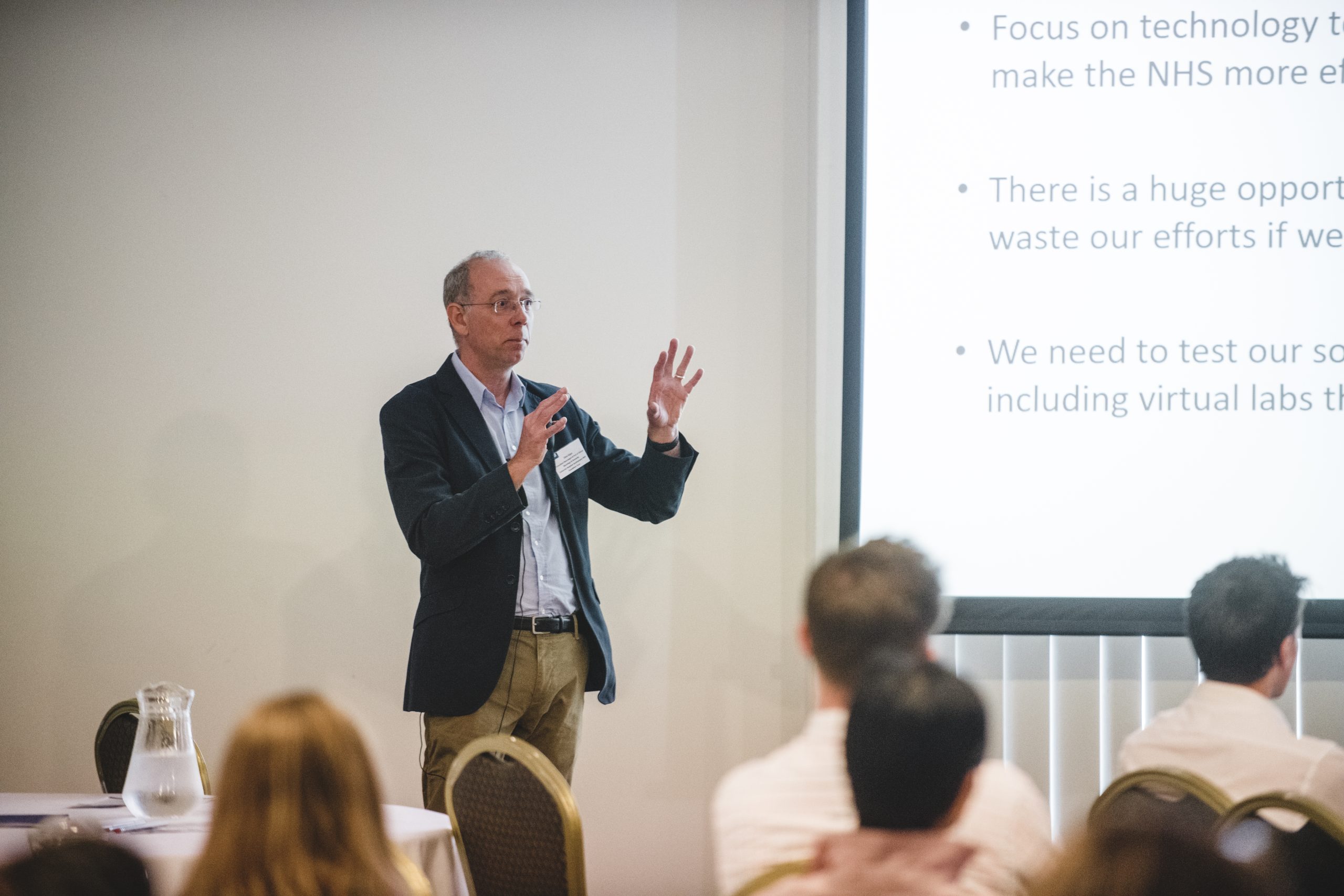
Beyond the Hype: Ethics, AI and the Future of Health Data
One of the most compelling sessions of the day came from Dr Jess Morley, Postdoctoral Researcher at Yale University’s Digital Ethics Centre and former Lead Researcher on the Goldacre Review. Returning to the UK to speak at SWAIH, Jess delivered a candid and critical assessment of the NHS’s digital ambitions – one that resonated with many in the room.
While the NHS 10-Year Plan mentions AI no fewer than 48 times, Jess cautioned against seeing it as a cure-all for complex systemic issues. Her talk dismantled the illusion that technology alone can fix what is, at its core, a deeply human and organisational challenge. Jess reflected that AI can’t save the NHS, because the data it relies on doesn’t exist in a vacuum – and neither do people.
Using a personal story – her relative waiting over 10 hours in A&E with a broken hip – Jess grounded the conversation in lived reality. This wasn’t abstract policy critique; it was a call to put care, equity and ethics at the centre of digital transformation.
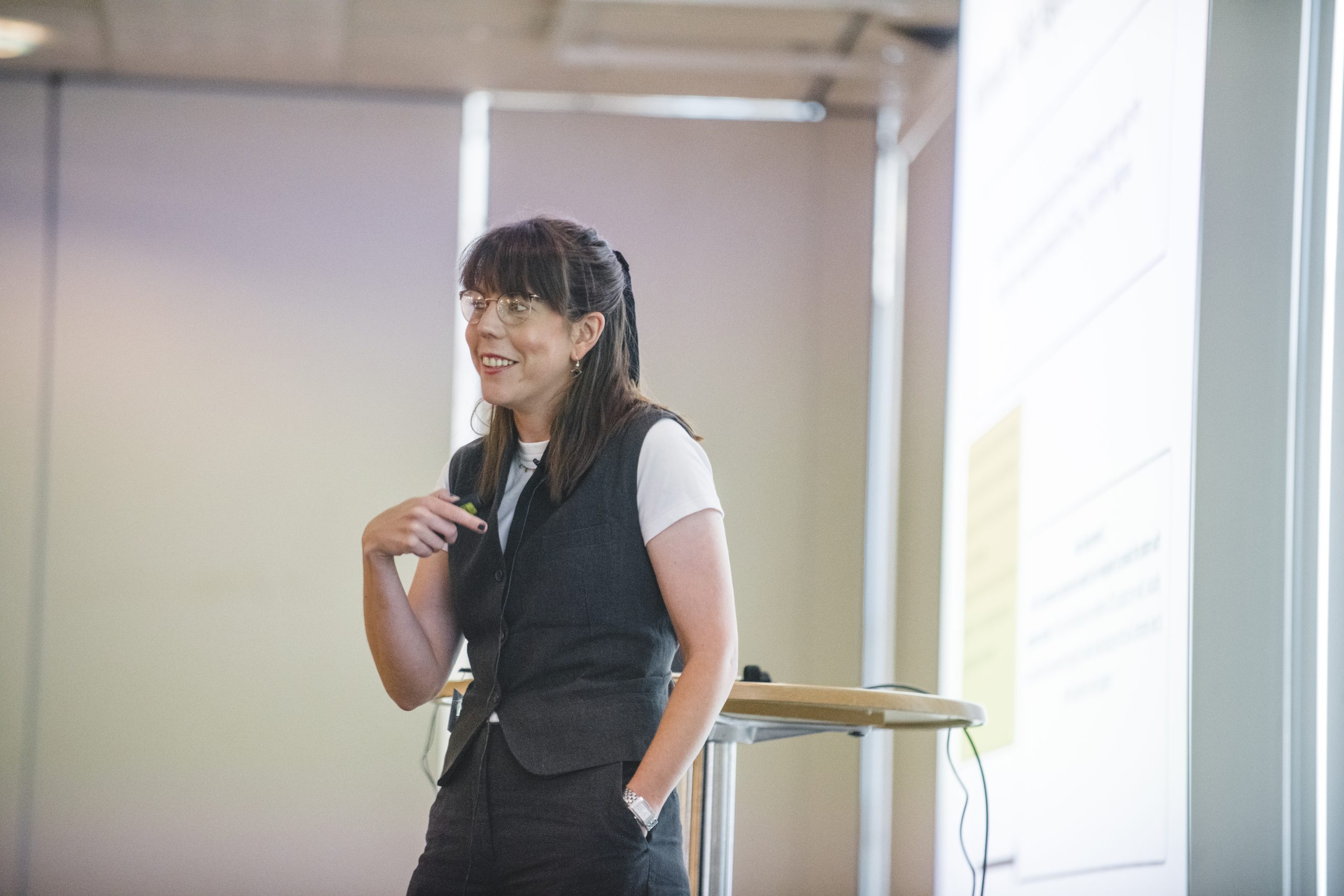
She unpacked what she referred to as the “Inverse Data Quality Law” – the unsettling truth that we often have the least data about the people who need the most care. NHS data flows, she explained, are often fragmented, legacy-laden and sent to hundreds of third parties, often with little transparency or oversight. Without high-quality, inclusive, real-time data, AI tools risk making things worse – particularly for those already marginalised.
Jess’s message was clear: building ethical, effective health technologies means ensuring they are technically feasible, socially acceptable, ethically justifiable, and legally compliant. That means diverse teams, robust governance, meaningful public involvement grounded in lived experience, and attention to both qualitative and quantitative data.
Her session left many attendees with a renewed sense of urgency: not just to build faster, but to build better, grounded in the values of the NHS and the realities of frontline care.
Infrastructure in Action: Secure Data Environments and EPIC Electronic Health Record
Members of the South West Secure Data Environment (SDE) team Charlie Kenward, Research Clinical Lead for BNSSG ICB, and Rachel Denholm, Research Lead at the University of Bristol, shared how the South West Secure Data Environment is now ready to begin offering safe and trusted access to health data research from regional data contributors. For researchers, this means a paradigm shift, improving access to high-quality, linked data for applied health research. For healthcare providers, this means a trusted, reliable and efficient route for providing access to their data for research.
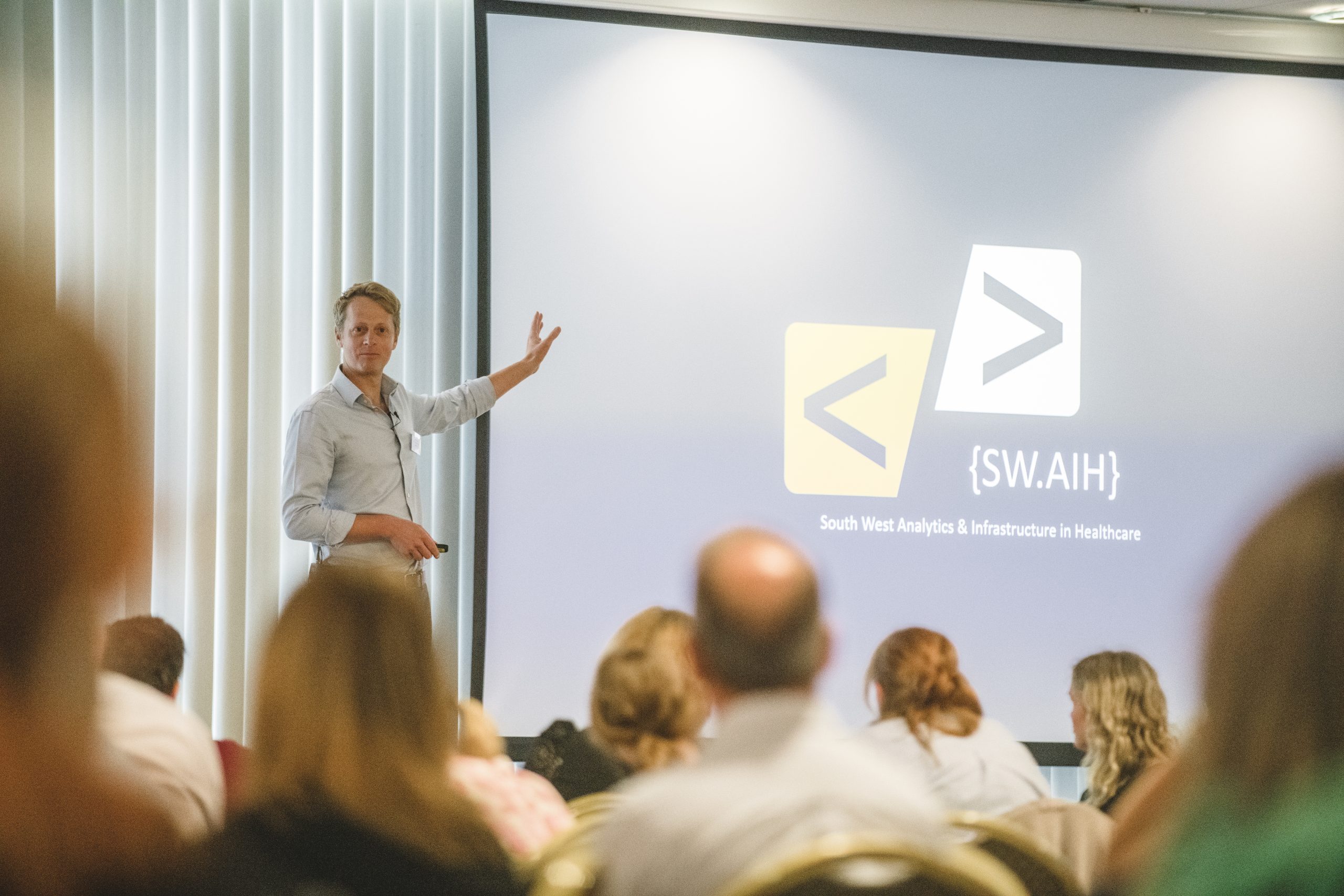
This was followed by a session showcasing how researchers in the region are now utilising data using the EPIC Secondary Care Electronic Health Record. This talk was led by Nick Kennedy (Consultant Gastroenterologist at the Royal Devon and Exeter NHS Foundation Trust), Jane Masoli (Associate Professor of Ageing Research at the University of Exeter and Honorary Consultant Geriatrician at the Royal Devon University Healthcare NHS Trust) and Michelle Ledbetter (Research Software Engineer at the University of Exeter). The presenters highlighted how NHS Trusts in the region are now able to operationalise detailed, real-time clinical data for research via EPIC. Michelle Ledbetter shared how data from EPIC is being transformed into Observational Medical Outcomes Partnership (OMOP) format. OMOP enables international research collaboration, with early exemplars focusing on multimorbidity and cardiovascular disease. With RDN funding supporting clinical trials over the next year, there are hopes that learning from OMOP South West can be taken into work on EPIC across the UK – a great example of interactive learning across the SWAIH network.
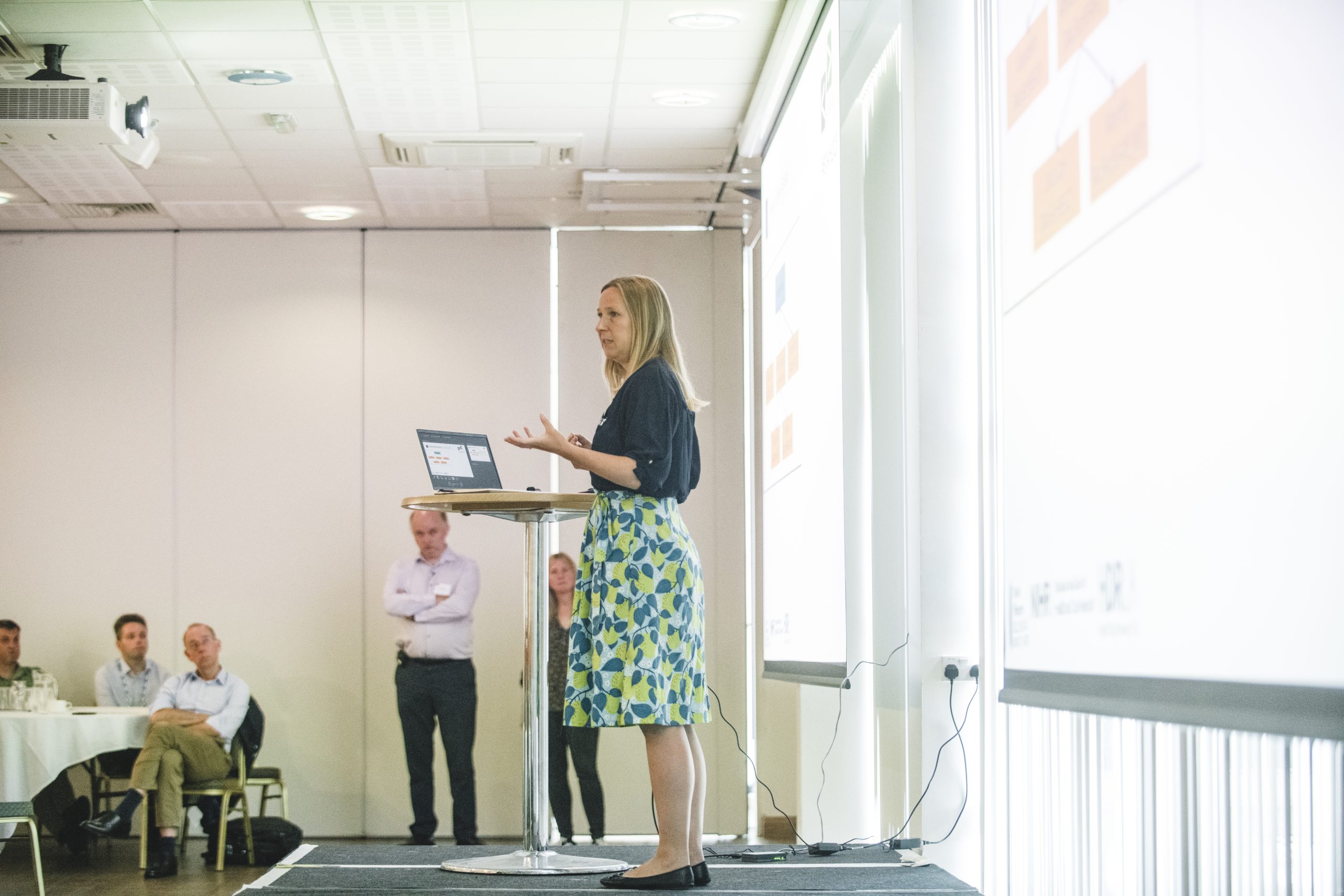
Lunch and Networking
After a packed morning of thought-provoking talks, attendees had the opportunity to connect over lunch and explore exhibition stands from PenARC, ARC West, the NIHR Academy, and more. The atmosphere was lively and energised, with conversations buzzing around the themes of the morning – ranging from the practicalities of data access to the promise (and pitfalls) of AI. It was a valuable chance to share reflections, spark new ideas, and strengthen connections across the region’s growing health data community.

We used the opportunity to catch up with Dr Jess Morley, who shared her thoughts on what she sees as the most important development in health data right now:
“(The most exciting thing in health data at this moment) is probably the realisation of how important it is… If we go back to the fact that, when I first started working in the health data space 10–12 years ago, you were one person inside an office and nobody really understood what you did, but now I think that health data is the thing… people have real live conversations around it. That recognition and value (of health data) is leading to developments in methodological innovation in ways we wouldn’t have previously had.”
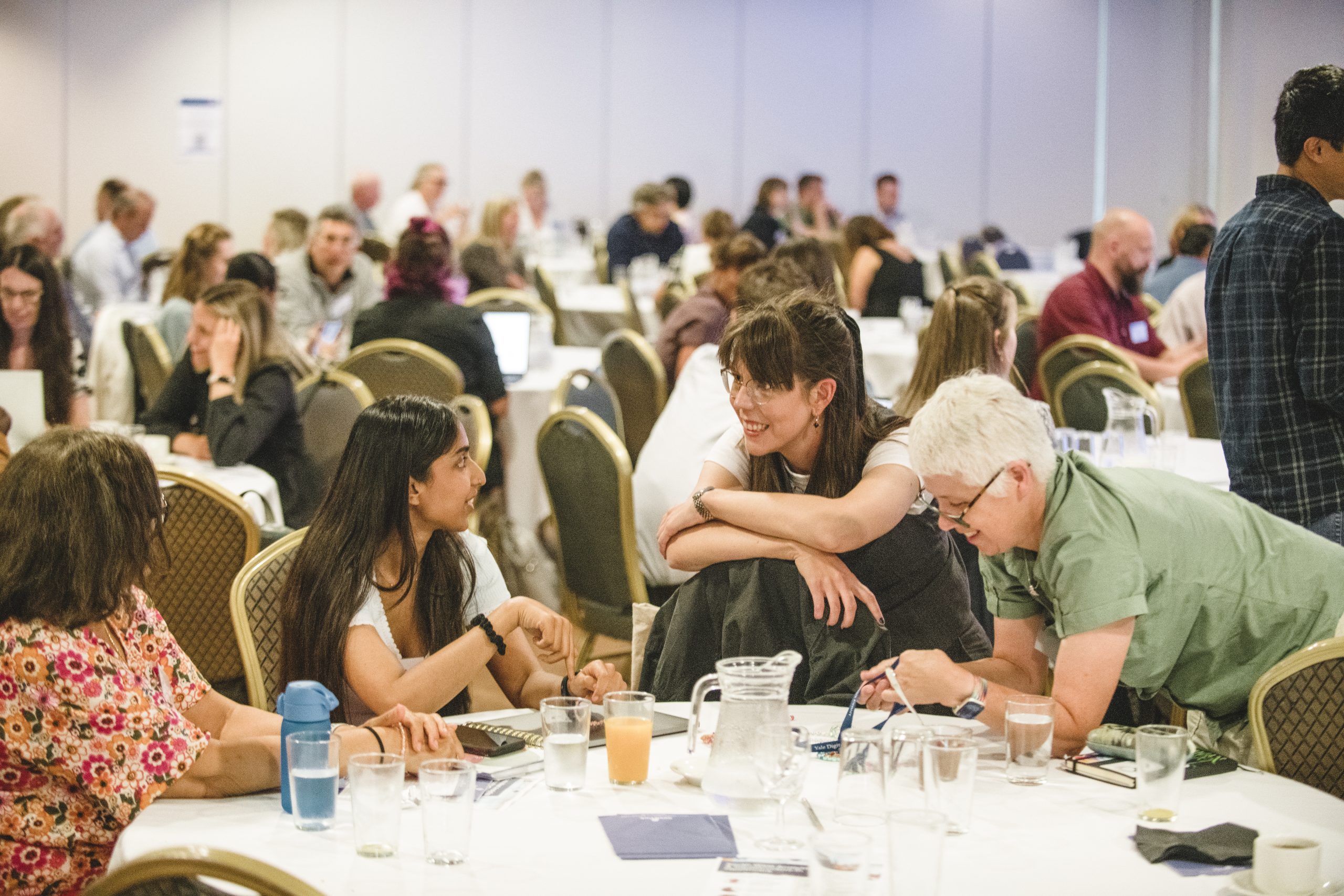
From Silos to Sharing: Culture Change in Analytics
Post lunch, Marc Farr (Chief Analytical Officer at East Kent Hospitals University NHS Foundation Trust) gave a lively talk and challenged us to “stop putting data in the corner”. His call: analysts must share work more openly, NHS systems must stop buying incompatible software, and we must acknowledge the serious gaps in the datasets we rely on – especially for underserved groups. It’s not just about better tech, he argued, but about better thinking and leadership.
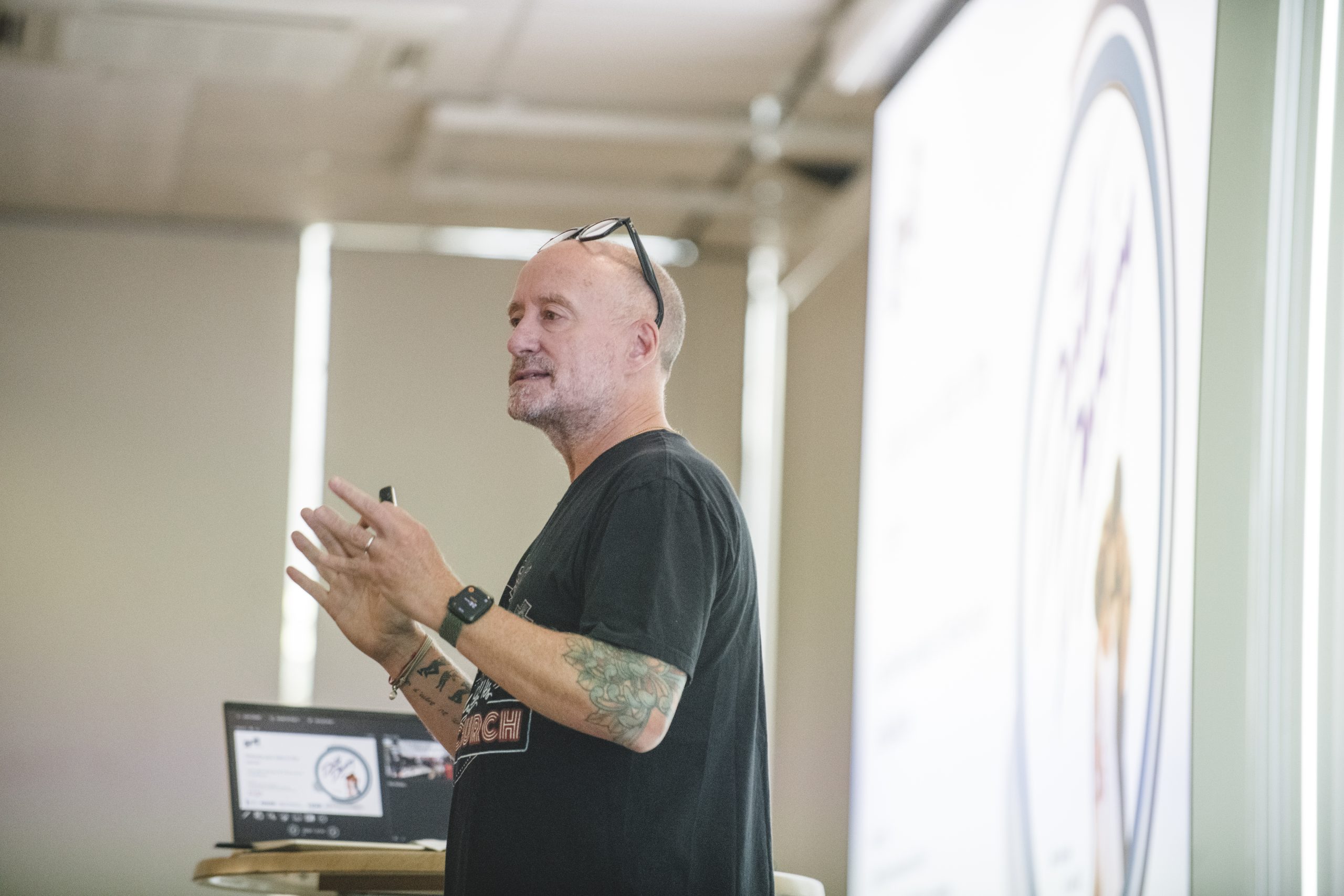
Afternoon Workshops: From Ideas to Implementation
In the afternoon, attendees chose from a series of focused, practical workshops designed to explore the day’s key themes in greater depth:
- Collaborative Analytics in the South West (Simon Wellesley-Miller, NHS England, Sammi Rosser, PenARC, Seb Fox, BNSSG ICB and Nick Cooper, Gloucestershire ICB)
Showcased open-source tools developed across the region – including RTT modelling and excess impact analysis – demonstrating how shared methods can support cross-organisational problem-solving and link analysts with academic researchers.
- Implementing the South West Secure Data Environment (Rachel Denholm, and Henry Ireland)
A practical workshop detailing how SW organisations can develop Information Governance, Data Sharing Agreements, and secure technical workflows to support begin to flow data into the SW SDE.
- Managing Successful Digital Initiatives with VECTORS (Ilia Ryzhkov, IBAX Ltd, and Neil Hays-Webster, Somerset FT)
Introduced the VECTORS framework – seven pillars for digital success in healthcare, including version control, infrastructure as code, and systematic testing – tailored for digital leads, engineers and transformation managers.
- How to Assess AI Technologies (Jess Morley, Yale University, and Andy Mayne, Somerset FT)
This session unpacked how to critically evaluate AI tools in health, navigate regulatory challenges, and ensure safety, accountability, and public trust. Sharing checklists and frameworks, this was a practical guide to how organisations can help assess and manage adoption of novel AI-driven technologies.
- Engaging the Public in Data-Driven Research, Andy Gibson, University of the West of England, Amanda Threlfall, Digital Critical Friend, and Mina Tanna, Digital Critical Friend
Shared best practice from the PEDRI standards and real-world experience of public involvement in the SDE – offering practical guidance on how to build meaningful, inclusive and transparent engagement strategies.
Q&A: Tackling the Big Questions
The day concluded with a lively and wide-ranging Q&A session, where attendees had been submitting and upvoting questions throughout the event using Mentimeter. This interactive format ensured the most pressing and popular concerns were brought directly to the panel – and they didn’t shy away from difficult conversations.
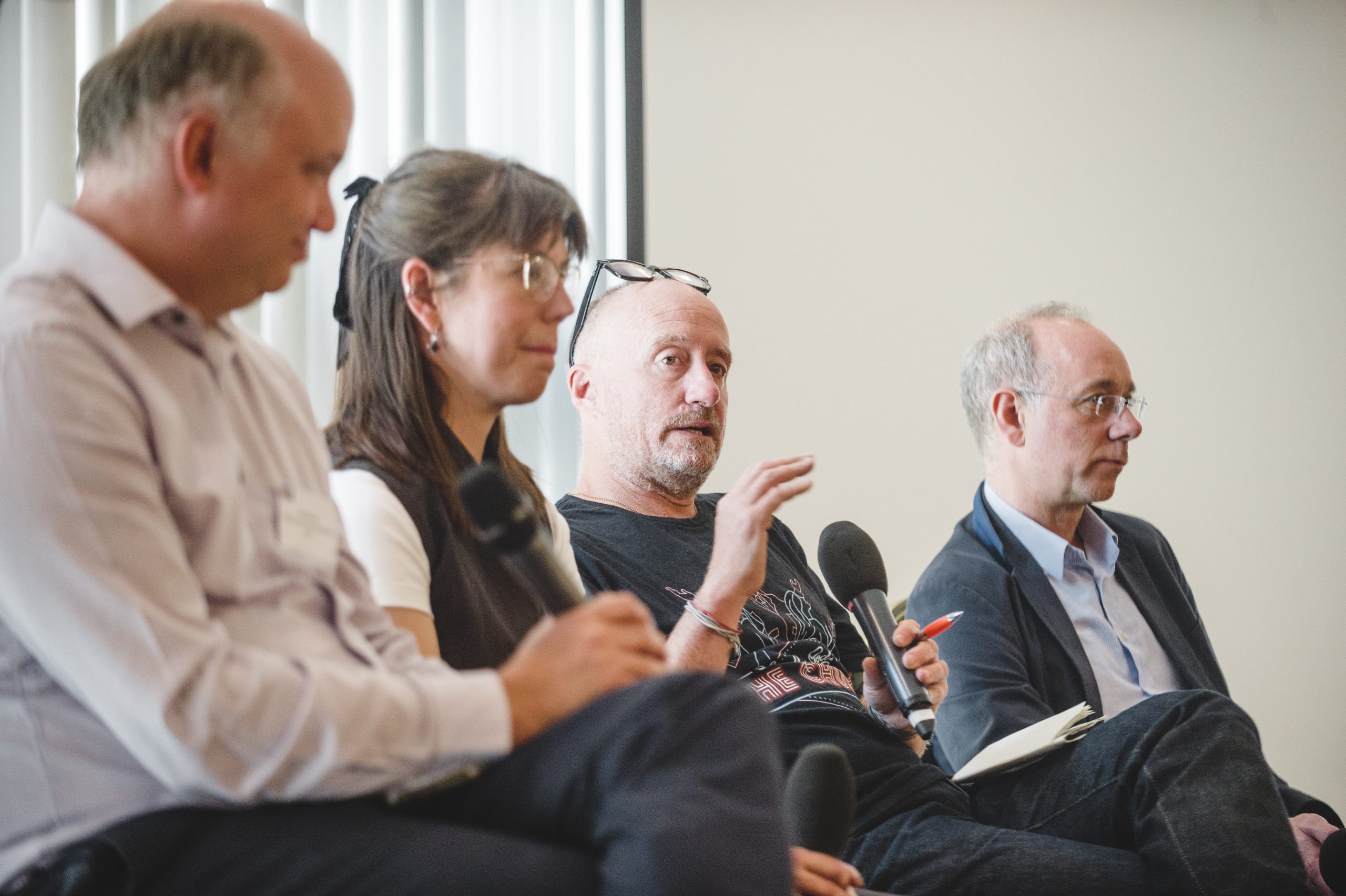
Topics included how to protect patient privacy in an era of continuous monitoring, the challenge of poor statistical standards in AI research, and the future of the NHS’s Federated Data Platform. Attendees also questioned how to improve collaboration between local government and healthcare systems, how High Performance Computing infrastructure like Isambard AI could integrate with Secure Data Environments, and whether open-source approaches like the OMOP pipeline can be scaled. A particularly resonant question asked whether NHS and academic institutions have the will – and capacity – to build accountable, trustworthy AI systems without over-relying on private companies. Some even asked if new institutions might be needed to meet the scale of the challenge.
The session captured the curiosity, challenge, and ambition that defined the day – and proved to be the perfect way to end an event focused on shaping the future of health data together.
If you’re interested in joining the SWAIH network, please contact Chrissie Walker (C.J.Walker@exeter.ac.uk) or sign up via the SWAIH website.
Author

